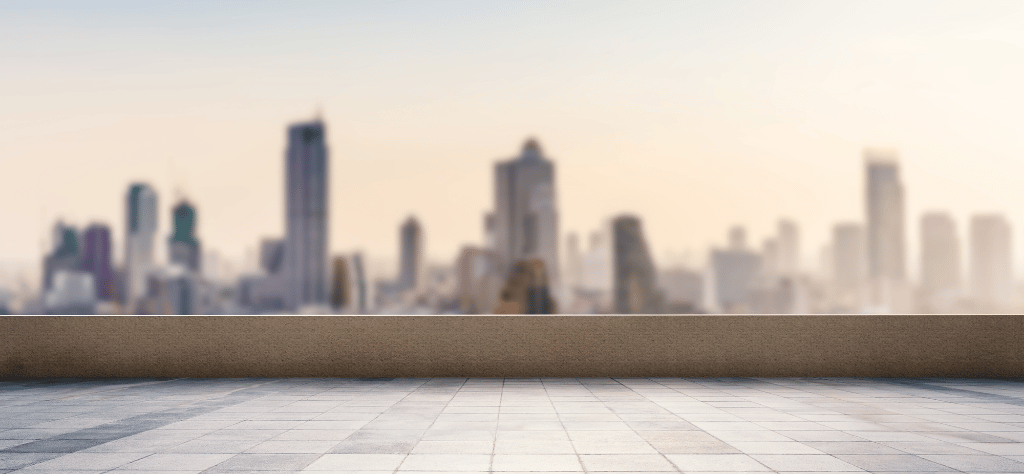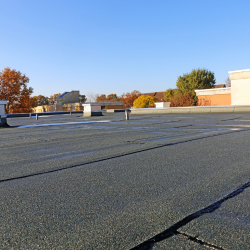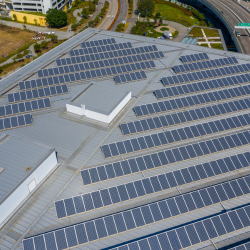
Exploring Flat Roofing: Pros and Cons for Your Home

Flat roofing has become increasingly popular for residential properties due to its modern aesthetic and space-saving benefits. However, like any roofing option, flat roofs come with their own set of advantages and disadvantages. In this article, we’ll explore the pros and cons of flat roofing to help you make an informed decision for your home.
Pros:
- Affordability: Flat roofing systems tend to be more cost-effective compared to traditional pitched roofs. The simple design and fewer materials required for installation often result in lower upfront costs.
- Space Utilization: One of the biggest advantages of this kind of roofing is its versatility in space utilization. Homeowners can use the flat surface for various purposes such as installing solar panels, creating a rooftop garden, or even adding a rooftop patio or living space.
- Accessibility: Unlike pitched roofs, which have steep slopes, flat roofs are easily accessible for maintenance and repairs. This accessibility can save homeowners time and money when it comes to regular upkeep and inspections.
- Modern Aesthetic: These roofs offer a sleek and contemporary look that complements modern architectural styles. They can enhance the overall appearance of a home and give it a more minimalist and streamlined aesthetic.
- Energy Efficiency: Flat roofing systems can be designed to include energy-efficient features such as reflective coatings or insulation. These features help to regulate indoor temperatures, reduce energy consumption, and lower utility bills.
Cons:
- Drainage Issues: One of the primary challenges of flat roofs is drainage. Without proper slope or drainage systems, flat roofs can be prone to water pooling, which can lead to leaks, water damage, and premature deterioration of roofing materials.
- Maintenance Requirements: While flat roofs are easily accessible for maintenance, they also require regular upkeep to prevent issues such as debris buildup, ponding water, and membrane damage. Neglecting maintenance can result in costly repairs down the line.
- Limited Insulation Options: These roofs typically have less space for insulation compared to pitched roofs. This can result in higher heating and cooling costs unless additional insulation measures are taken during installation.
- Susceptibility to Leaks: Flat roofs are more susceptible to leaks compared to pitched roofs, especially if proper waterproofing measures are not taken during installation. Regular inspections and maintenance are essential to identify and address potential leak points.
- Lifespan: While flat roofing systems can be durable when properly maintained, they tend to have a shorter lifespan compared to pitched roofs. Factors such as weather exposure, UV radiation, and foot traffic can contribute to premature wear and tear.

In conclusion, flat roofing offers several advantages such as affordability, space utilization, and modern aesthetics. However, it also comes with challenges such as drainage issues, maintenance requirements, and susceptibility to leaks. Before opting for a flat roof, homeowners should carefully weigh the pros and cons and consult with a qualified roofing contractor to ensure they make the best choice for their home.
For expert guidance on roofing solutions and installation, contact Roofworx today. Our team of professionals is dedicated to providing top-tier roofing services tailored to your specific needs and budget.
